Namibia
Namibia ranks 24th globally out of 180 countries, according to the just released 2017 World Press Freedom Index. The rankings by Reporters Without Borders also mean that the country tops Africa in press freedom, closely followed by Ghana and Cape Verde which respectively rank 26th and 27th globally.
South Africa, Burkina Faso, Botswana, Mauritania, Mauritius, Madagascar and Senegal complete Africa’s top 10 list.
RSF says that this year’s report reflects a world in which attacks on the media have become commonplace and strongmen are on the rise.
Overall, Africa comes out in the report as the World’s third freest region after the Americas, Europe and the Balkans, despite cases of Internet being routinely disconnected at election time and during major protests in a number of countries.
The report comes in the wake of the sentencing of a Cameroonian journalist Abba Ahmed to 10 years in prison by a military tribunal in the country. It also follows the naming of Ethiopian journalist and blogger, Eskinder Nega as the winner of the World Press Freedom Hero award by the International Press Institute (IPI) despite being in jail since 2011.
Published annually by RSF since 2002, the World Press Freedom Index measures the level of media freedom in 180 countries, including the level of pluralism, media independence, and respect for the safety and freedom of journalists. The 2017 Index takes account of violations that took place between January 1st and December 31st 2016.
According to RSF, the global indicator and the regional indicators are calculated based on the scores assigned to each country. The country scores are calculated from the answers to a questionnaire in 20 languages that is completed by experts throughout the world, supported by a qualitative analysis. The scores and indicators measure the level of constraints and violations, so the higher the figure, the worse the situation. Because of growing awareness of the Index, it is an extremely useful and increasingly influential advocacy tool, it says.
Global Perspective
According to RSF the obsession with surveillance and violations of the right to the confidentiality of sources have contributed to the continuing decline of many countries previously regarded as virtuous. This includes the United States (down 2 places at 43rd), the United Kingdom (down 2 at 40th), Chile (down 2 at 33rd), and New Zealand (down 8 at 13th).
It further maintains that Donald Trump’s rise to power in the United States and the Brexit campaign in the United Kingdom were marked by high-profile media bashing, a highly toxic anti-media discourse that drove the world into a new era of post-truth, disinformation, and fake news.
Media freedom has retreated wherever the authoritarian strongman model has triumphed. Jaroslaw Kaczynski’s Poland (54th) lost seven places in the 2017 Index. After turning public radio and TV stations into propaganda tools, the Polish government set about trying to financially throttle independent newspapers that were opposed to its reforms.
Viktor Orbán’s Hungary (71st) has fallen four places. John Magufuli’s Tanzania (83rd) has fallen 12. After the failed coup against Recep Tayyip Erdogan, Turkey (down 4 at 155th) swung over into the authoritarian regime camp and now distinguishes itself as the world’s biggest prison for media professionals. Vladimir Putin’s Russia remains firmly entrenched in the bottom fifth of the Index at 148th.
“The rate at which democracies are approaching the tipping point is alarming for all those who understand that, if media freedom is not secure, then none of the other freedoms can be guaranteed,” RSF secretary-general Christophe Deloire said. “Where will this downward spiral take us?”
Tail End
At the other end of the Index, Eritrea (179th) has surrendered last place to North Korea for the first time since 2007, after allowing closely-monitored foreign media crews into the country.
North Korea (180th) continues to keep its population in ignorance and terror – even listening to a foreign radio broadcast can lead to a spell in a concentration camp. The Index’s bottom five also includes Turkmenistan (178th), one of the world’s most repressive and self-isolated dictatorships, which keeps increasing its persecution of journalists, and Syria (177th), riven by a never-ending war and still the deadliest country for journalists, who are targeted by both its ruthless leadership and Jihadi rebels.
IMAGE CREDIT/https://www.enviro-awareness.org.na



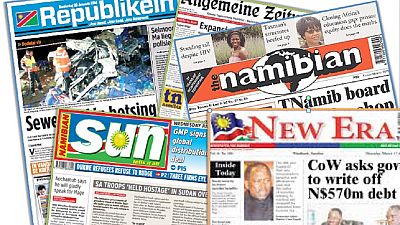

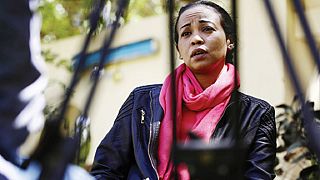
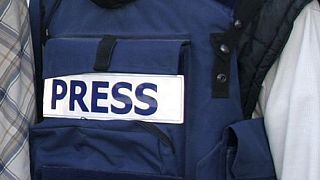
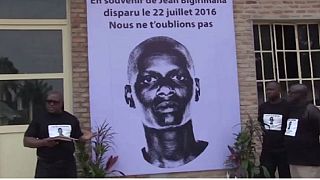
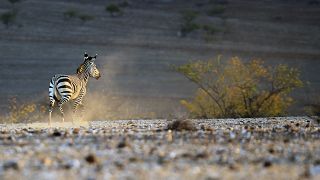
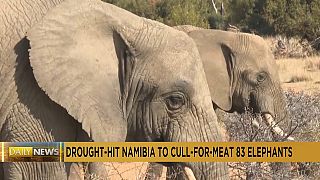
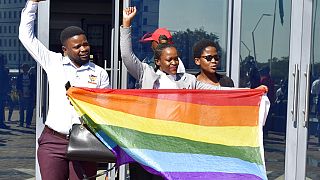



Go to video
World's longest detained journalist wins rights prize
Go to video
Moroccan journalist sentenced to 18 months after remarks about a politician
Go to video
RSF urges Sahel States to sign declaration protecting journalists’ right to information
Go to video
Algeria: Journalist Ihsane El Kadi obtains presidential pardon
01:26
UN: Southern Africa faces worst hunger crisis in decades due to El Niño
01:03
UK zoo welcomes endangered African Penguin chicks